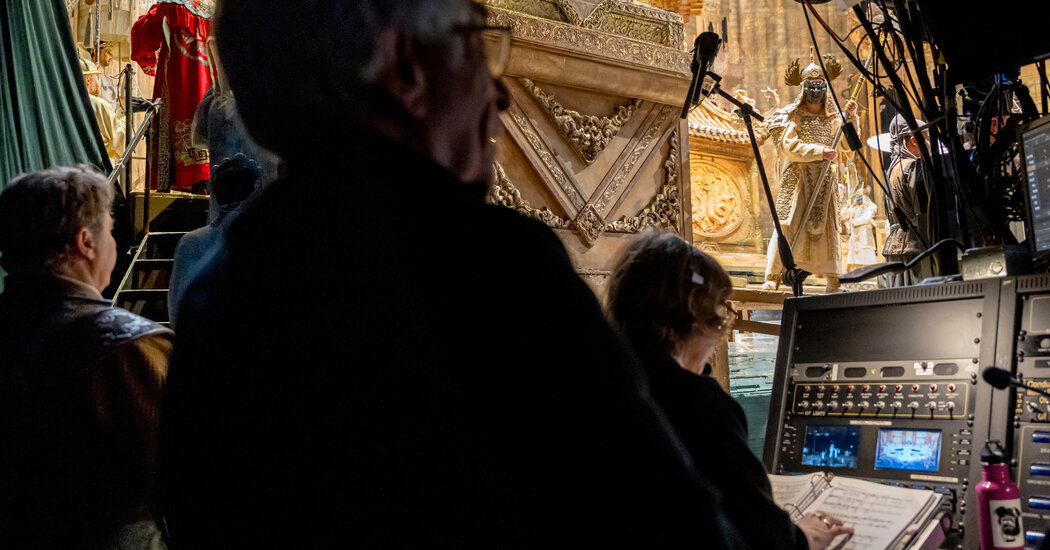Even as the Metropolitan Opera’s repertoire ranges from Handel to Mozart, Verdi, Wagner and Puccini to the mid-20th century, being a chorus member remains an extremely difficult job. But as the troupe has performed more contemporary operas over the past two decades – with phrases as varied as Philip Glass’s Satyagraha and the time-stopping repetition of Akhenaton, and Thomas’ The dense dissonance of Adès’s “The Exterminating Angel” – the demand increased. The quality of the choir also improved, thanks in no small part to Palumbo.
“When we started Satyagraha, everyone was a little skeptical,” said Jean Braham, a chorister since the late 1990s. “By the end, it really felt like a Zen experience. It was amazing. Donald’s preparation really made it possible for us.
Perhaps the most striking thing about Palumbo’s rise to the top of his profession—”We all aspired to be like Donald,” says Michael Black, current chorus master of the Lyric Opera of Chicago—is that he had no formal musical training. As a boy growing up in Rochester, New York, he fell in love with opera, played some piano, and sang in the school choir. But as an undergraduate at Boston University, he studied chemistry.
After graduation, however, he moved to Vienna, where he turned to music, immersing himself in the rich opera scene of the early 1970s and singing in a choir conducted by Herbert von Karajan. Several times. “Karjan and Georg Solti were polar opposites at the time,” Palumbo said. “I became attracted to Karajan’s style, this rounder, rounder, deeper sound.”
One of Palumbo’s slogans is “Never let your voice transcend beauty.” The pursuit of a warm, blended, refined sound began to bloom when he returned to the United States and worked as a pianist for a renowned voice teacher in Boston. When he became assistant to Roberto Benaglio, the choir director of the Dallas Opera, he found similarities with Karajan’s style in the old Italian school.
He had been working at Lyric for more than a decade and had just completed building and renovating his new home in Chicago when the Met called. “But there’s no way to say no,” he said. “If you’re an American and you grew up listening to Saturday Met Radio, if you have to turn on the radio after practice at a certain time, that’s not OK.”




